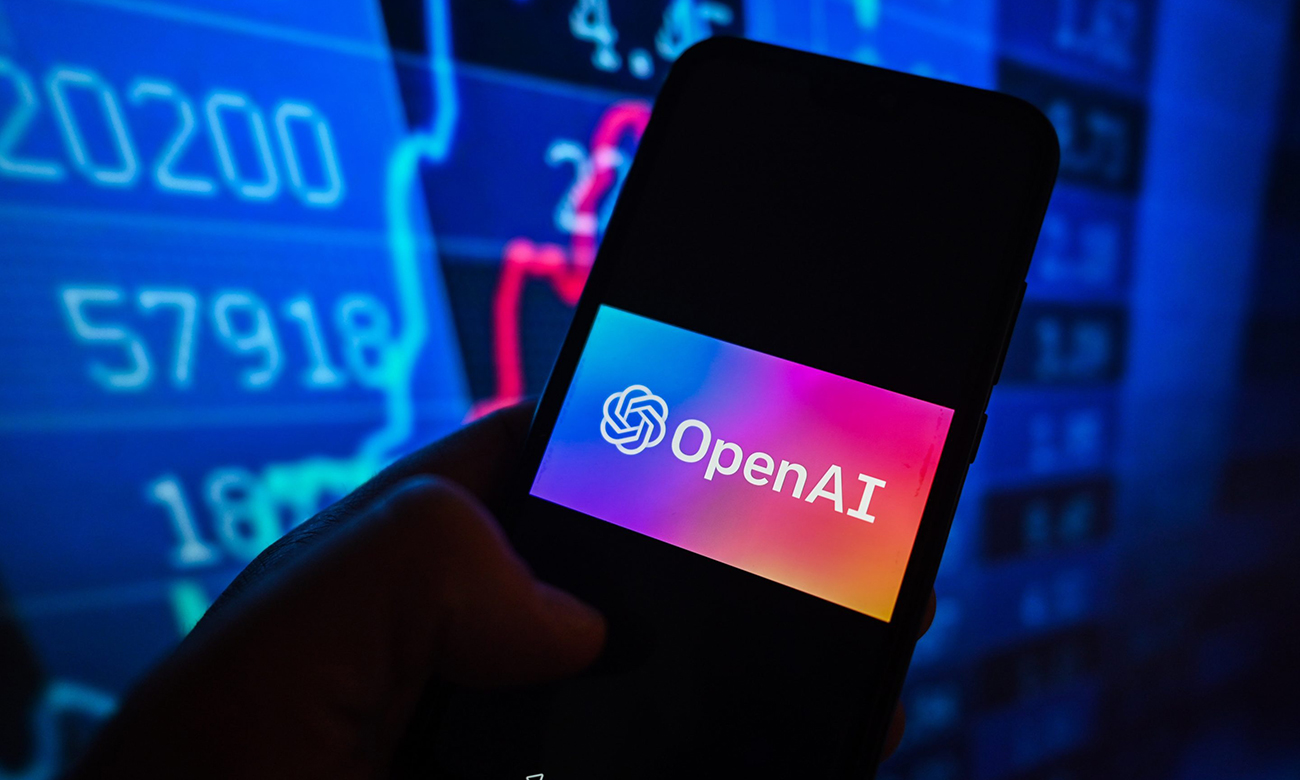
学校开始将人工智能驱动的聊天机器人作为教学工具,公司开始安排人工智能自动执行重复性工作,保险公司则利用人工智能处理新客户理赔。鉴于人工智能强大的能力,投资者显然也应该加大对该项技术的投入。
摩根士丹利(Morgan Stanley)的财富管理部门在5月10日发布了一份对近1,000名投资者和理财顾问的调查报告。报告显示,理财顾问指出,人工智能技术将带来巨大的投资机会,但目前客户依旧更倾向于人与人之间的交流。
调查发现,人工智能将对金融业产生巨大影响,有72%的投资者将人工智能称为未来的“颠覆性技术”。报告称:“大多数投资者认为,人工智能将在金融服务业掀起革命。”
摩根士丹利财富管理部门的分析、数据与创新总监杰夫·麦克米伦在一份声明中说:“人工智能的突破性显而易见,而对于人工智能可能对金融服务业产生的影响,我们的了解非常肤浅。”
尽管人工智能将在金融服务业掀起革命,投资者却不太可能完全信任这项技术,而且人类理财顾问将继续发挥关键作用,有超过80%的受访者认为人工智能永远无法完全取代人类的指导。
但使用人工智能的投资公司将很快在竞争中占据优势,有63%的投资者称,他们更愿意选择使用人工智能技术的公司,而不是没有使用该技术的公司。
人工智能与投资
多年来,摩根士丹利一直在利用人工智能增强财富管理业务。2017年,摩根士丹利推出了人工智能驱动的软件,以协助数千名理财顾问制定个性化理财计划。2019年,摩根士丹利开发的一款人工智能模型,可以根据内部分析师的市场报告中确定的规律制定原始股交易策略。2021年,摩根士丹利宣布与微软(Microsoft)合作,将该科技公司的云计算和人工智能工具整合到其投资服务当中。
麦克米伦在2021年的《财富》头脑风暴人工智能(Brainstorm A.I.)大会上将摩根士丹利对人工智能的大力投入称为“业务需要”。他指出,该银行使用人工智能生成理财建议,是“为了维护客户的利益”。
摩根士丹利在今年3月又有新举措。该银行宣布投资领先人工智能初创公司OpenAI,并与该公司展开合作。摩根士丹利使用驱动ChatGPT的大语言模型,推出了一款测试版聊天机器人,能够帮助其16,000名理财顾问利用摩根士丹利的海量财务数据和分析,制定个性化理财建议。
麦克米伦当时在接受美国消费者新闻与商业频道(CNBC)采访时表示,在摩根士丹利,“人们希望像最聪明的人一样知识渊博。当你与客户通话的时候,人工智能就像是坐在你身边的首席策略官。”
摩根士丹利的最新调查显示,该银行在财富管理部门开发人工智能助手可能开始带来回报。调查发现,74%的投资者表示理财顾问在人工智能的协助下会有更好的业绩。2023年第一季度,该部门的营收为66亿美元。
但调查结果也表明,人工智能应该只是作为助手,而不是取代所有理财顾问的职责。有88%的受访者认为,与人类面对面交流对理财顾问“极其重要”。
虽然一些专门设计用于股票交易的人工智能模型已经初步取得成功,但有专家警告,投资者不能盲目相信ChatGPT等应用程序,将资金交给它们处理,因为人工智能技术依旧存在显而易见的错误。
佛罗里达大学(University of Florida)今年4月的一项研究发现,ChatGPT根据金融资讯预测股票波动的能力,高于人类的分析,但研究人员在接受《财富》杂志采访时警告,现有模型依旧容易出现错误或曲解信息。
他们称,人工智能可能对银行和大型基金等机构投资者带来突破,但使用ChatGPT等模型帮助个人投资者选择股票,只是“比抛硬币略好一点”。虽然银行和大型投资机构可以运行经过数次迭代的不同提示词和媒体报道,以完善ChatGPT的股票预测,并制定投资策略,但个人投资者可能很难取得同样的成功,因为在试验期间,个人的提示词只有少数标题,准确率仅有51%。(财富中文网)
译者:刘进龙
审校:汪皓
学校开始将人工智能驱动的聊天机器人作为教学工具,公司开始安排人工智能自动执行重复性工作,保险公司则利用人工智能处理新客户理赔。鉴于人工智能强大的能力,投资者显然也应该加大对该项技术的投入。
摩根士丹利(Morgan Stanley)的财富管理部门在5月10日发布了一份对近1,000名投资者和理财顾问的调查报告。报告显示,理财顾问指出,人工智能技术将带来巨大的投资机会,但目前客户依旧更倾向于人与人之间的交流。
调查发现,人工智能将对金融业产生巨大影响,有72%的投资者将人工智能称为未来的“颠覆性技术”。报告称:“大多数投资者认为,人工智能将在金融服务业掀起革命。”
摩根士丹利财富管理部门的分析、数据与创新总监杰夫·麦克米伦在一份声明中说:“人工智能的突破性显而易见,而对于人工智能可能对金融服务业产生的影响,我们的了解非常肤浅。”
尽管人工智能将在金融服务业掀起革命,投资者却不太可能完全信任这项技术,而且人类理财顾问将继续发挥关键作用,有超过80%的受访者认为人工智能永远无法完全取代人类的指导。
但使用人工智能的投资公司将很快在竞争中占据优势,有63%的投资者称,他们更愿意选择使用人工智能技术的公司,而不是没有使用该技术的公司。
人工智能与投资
多年来,摩根士丹利一直在利用人工智能增强财富管理业务。2017年,摩根士丹利推出了人工智能驱动的软件,以协助数千名理财顾问制定个性化理财计划。2019年,摩根士丹利开发的一款人工智能模型,可以根据内部分析师的市场报告中确定的规律制定原始股交易策略。2021年,摩根士丹利宣布与微软(Microsoft)合作,将该科技公司的云计算和人工智能工具整合到其投资服务当中。
麦克米伦在2021年的《财富》头脑风暴人工智能(Brainstorm A.I.)大会上将摩根士丹利对人工智能的大力投入称为“业务需要”。他指出,该银行使用人工智能生成理财建议,是“为了维护客户的利益”。
摩根士丹利在今年3月又有新举措。该银行宣布投资领先人工智能初创公司OpenAI,并与该公司展开合作。摩根士丹利使用驱动ChatGPT的大语言模型,推出了一款测试版聊天机器人,能够帮助其16,000名理财顾问利用摩根士丹利的海量财务数据和分析,制定个性化理财建议。
麦克米伦当时在接受美国消费者新闻与商业频道(CNBC)采访时表示,在摩根士丹利,“人们希望像最聪明的人一样知识渊博。当你与客户通话的时候,人工智能就像是坐在你身边的首席策略官。”
摩根士丹利的最新调查显示,该银行在财富管理部门开发人工智能助手可能开始带来回报。调查发现,74%的投资者表示理财顾问在人工智能的协助下会有更好的业绩。2023年第一季度,该部门的营收为66亿美元。
但调查结果也表明,人工智能应该只是作为助手,而不是取代所有理财顾问的职责。有88%的受访者认为,与人类面对面交流对理财顾问“极其重要”。
虽然一些专门设计用于股票交易的人工智能模型已经初步取得成功,但有专家警告,投资者不能盲目相信ChatGPT等应用程序,将资金交给它们处理,因为人工智能技术依旧存在显而易见的错误。
佛罗里达大学(University of Florida)今年4月的一项研究发现,ChatGPT根据金融资讯预测股票波动的能力,高于人类的分析,但研究人员在接受《财富》杂志采访时警告,现有模型依旧容易出现错误或曲解信息。
他们称,人工智能可能对银行和大型基金等机构投资者带来突破,但使用ChatGPT等模型帮助个人投资者选择股票,只是“比抛硬币略好一点”。虽然银行和大型投资机构可以运行经过数次迭代的不同提示词和媒体报道,以完善ChatGPT的股票预测,并制定投资策略,但个人投资者可能很难取得同样的成功,因为在试验期间,个人的提示词只有少数标题,准确率仅有51%。(财富中文网)
译者:刘进龙
审校:汪皓
Schools are starting to use artificial intelligence-powered chatbots as teaching tools, companies are enlisting A.I. to automate repetitive work, and insurance firms are tapping A.I. to process new customer claims. Considering A.I.’s impressive abilities, it makes sense that investors may also double down on the technology.
Financial advisors say the technology will lead to big changes in investing, although customers still prefer a human touch for the time being, according to a survey of nearly 1,000 investors and financial advisors by Morgan Stanley’s wealth management arm that was published on May 10.
A.I. will have big implications for finance, and 72% of investors call it a “game changer” in the making, according to the survey. “Most believe A.I. will be revolutionary for financial services,” the study said.
“While A.I. is clearly groundbreaking, and we are just scratching the surface of its potential impact within financial services,” Jeff McMillan, head of analytics, data, and innovation at Morgan Stanley’s wealth management arm, said in a statement.
Even if A.I. will revolutionize the field, investors are unlikely to place all of their trust with the technology, and human advisors will continue playing a critical role, with more than 80% of survey respondents saying A.I. would never completely replace human guidance.
But investment firms that embrace A.I. will likely hold an edge over competitors soon enough, as 63% of investors said they would rather work with a company that leverages the technology versus a firm that doesn’t.
A.I. and investing
Morgan Stanley has tapped A.I. to enhance its wealth management arm for years. In 2017, the bank rolled out A.I.-powered software to assist its thousands of financial advisors in creating personalized plans. In 2019, it developed an A.I. model that could come up with original stock trading strategies based on patterns identified in market reports by Morgan Stanley’s own analysts. And in 2021, the bank announced a partnership with Microsoft to integrate the tech company’s cloud computing and A.I. tools with Morgan Stanley’s investment services.
McMillan framed Morgan Stanley’s big bets on A.I. as a “business requirement” while speaking at Fortune’s Brainstorm A.I. conference in 2021, saying that the bank’s use of A.I. to generate advice was “in the interest of the client.”
Morgan Stanley took another big step in March of this year, when it announced an investment and partnership with leading artificial intelligence startup OpenAI. Using the same large language model technology that powers ChatGPT, Morgan Stanley launched its own chatbot in a trial version that would help the bank’s 16,000 financial advisors navigate Morgan Stanley’s vast libraries of financial data and analysis to create personalized advice.
“People want to be as knowledgeable as the smartest person” at Morgan Stanley, McMillan said in an interview with CNBC at the time. “This is like having our chief strategy officer sitting next to you when you’re on the phone with a client.”
Morgan Stanley’s bet on A.I. assistants in its wealth management arm—which generated $6.6 billion in revenue during the first quarter of 2023—may be starting to pay off, according to its recent survey, which found that 74% of investors say financial advisors would work better if assisted by A.I.
But the survey’s findings also suggested that A.I. should only remain an assistant, rather than take on all of financial advisors’ duties, with 88% of respondents saying that face-to-face interactions with a human were “extremely important” for financial advisors.
While some A.I. models specifically designed to trade stock have shown early success, some experts have warned that investors should not blindly trust applications like ChatGPT with their money, as the technology is still prone to glaring errors.
An April study from the University of Florida found that ChatGPT could outperform human analysis to predict stock movements based on financial news headlines, although in an interview with Fortune, the researchers cautioned that current models are still prone to making mistakes or misinterpreting information.
They said that A.I. will likely become revolutionary for institutional investors like banks and large funds, but models like ChatGPT are only “a little better than tossing a coin” when it comes to helping individual investors make stock picks. While banks and large teams could run many iterations of different prompts and headlines to refine ChatGPT’s stock predictions and come up with an investment strategy, individual investors would likely have less success, as individual prompts with only a few headlines during the experiment only had a 51% accuracy rate.






